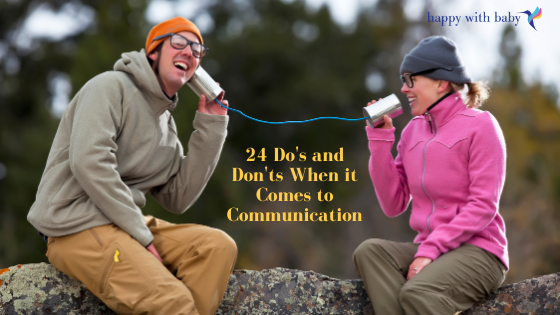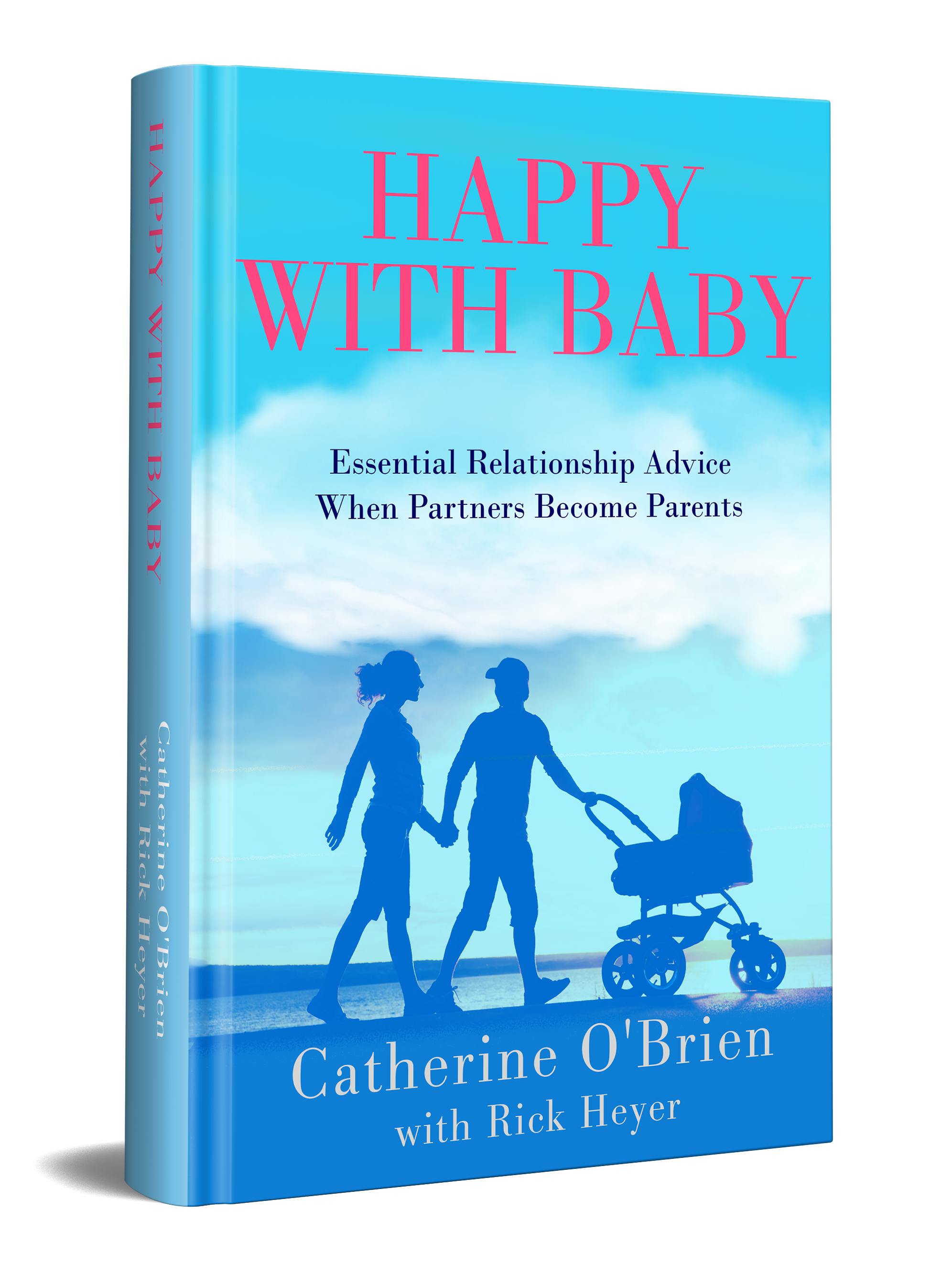24 Do's and Don'ts When it Comes to Communication

I have to admit, the desire to communicate doesn’t always come easy, especially when feelings and emotions get mixed in.
One thing I am certain of though…
“communication is key”.
This phrase is on repeat in my personal life, in my professional life and in my work with my clients.
It is so easy to say, it rolls right off my tongue, and yet it isn’t always easy to live by.
When I sit down with individuals or couples in my office, these are some of the common tips I recommend as we work towards building better, connected communication.
-
Don’t try to have hard conversations over text message. There’s too much room for misinterpretation. It also isn’t respectful of the other person’s time--they might not be available to respond to you in a timely manner, which can leave you wondering if they’re ignoring or avoiding you.
-
Always try to keep each other’s humanity at the forefront. A phone call is better than a text message. A video call is better than a phone call. In-person is better than video. But also, keep in mind that there are always reasons why the “best” option isn’t ideal, like if physical safety or time constraints are a concern.
-
If you don’t know how you feel about a troubling or complicated situation, try writing a letter to that person. You don’t actually have to give it to them. In fact, it often might be better if you don’t. But taking the time to write unfiltered can help you to figure out how you really feel, what you want to say, and how to say it.
-
Try responding with a question to learn more and do a “perception check” whenever necessary. Paraphrase their statements and confirm that this is what they are trying to say. “I just want to see if you mean what I think you mean because I don’t want to misunderstand you.” Or ask, “You seem irritated by that comment… Am I right?”
-
You often don’t get the things you don’t ask for. Speak up about what you need.
-
Compromise takes trial and error. But the error part isn’t failure, it’s new information. This is why periodic check-ins and reevaluation are necessary.
-
Be specific and direct about what you need. Or if you don’t know what you need, open with that.
-
When in doubt, slow down. Bounce some ideas off each other. Check in with your body for signals or clues. Pause before you speak. If you can’t keep up with the ideas or points swirling in your head, jot down notes.
-
In legal mediation, all decision makers should be present. That seems like good advice for all of us non-lawyers too.
-
As Drs. Julie and John Gottman of the Gottman Institute say, don’t “kitchen sink” the conversation. Deal with one problem at a time. It’s harder to find solutions when you have too much to rummage through.
-
Practice active listening to prevent misunderstandings and stay engaged.
-
Avoid “You Always/Never” and instead use “I feel,” “I need,” and “I want” statements. Avoid blaming anyone. Keep the focus on outcomes.
-
Avoid using contempt, both verbal and nonverbal. This only serves to hurt someone and does little toward progress.
-
You might not be able to compromise in every specific situation, but you can compromise in general. Sometimes we have to pick our battles.
-
You can have your hard No’s.... just not all the time.
-
Don’t always expect to reach an agreement. Sometimes it’s OK to agree to disagree. Other times, you just need to take a break.
-
Be clear about your expectations. Don’t assume that all participants in the conversation have the same expectations as you.
-
Know when it’s time to take a time-out. Ask for one when you need it and honor it when someone else asks you for a break.
-
Take time to reflect. Ask yourself, what am I familiar or comfortable with in this? What is challenging me? If you are mediating a difficult conversation between friends or family members, offer them time to reflect on these questions too.
-
When someone seems to be reacting in a way that is out of proportion to the problem at hand, do pause to consider if there is something else that is informing their reaction, such as a traumatic event, family history, a known neurological disorder such as ADHD, Autism spectrum, anxiety or depression. You can do this without excusing any bad behavior or trying to “diagnose”. Sometimes your intuition will tell you something else is going on. Other times, it pays off to stay curious and explore where this is coming from. We’re not all wired the same or bring the same life experiences with us and it’s easy to misunderstand what we don’t know. (But if you feel out of your depth, or unsafe, do reach out for appropriate support.)
-
If you tend to be a people-pleaser or are conflict-averse or struggle with upholding boundaries, it’s important to learn how and when to say no and stand by it.
-
Keep your No’s short, direct and simple. Avoid “maybe later” or other soft No’s that keep the possibility open, unless if you actually do want to revisit it later.
-
Believe your partner or friend’s words, even if you don’t understand their logic.
25. Whenever possible, let go. Forgive. Don’t let negative feelings fester into resentments. Do it for yourself, if not for the other person.
Let us know which tips stand out the most for you. Pick one and share how you envision implementing it in your own life.
If you are finding it difficult to even begin to want to use these tips because of resentment, frustration or anger, please don’t hesitate to reach out and ask for help. Being in a relationship takes work and this last year has definitely made things more difficult.
You are not alone and there is support out there for you.
Watch Now:
“This is a great book for new parents. I love that it’s full of real life examples of couples that the author has counseled. She offers great advice in an easy to read style.”
AMK - Amazon customer
Subscribe
Sign up to get the latest weekly blogs sent straight to your inbox



0 comments
Leave a comment
Please log in or register to post a comment